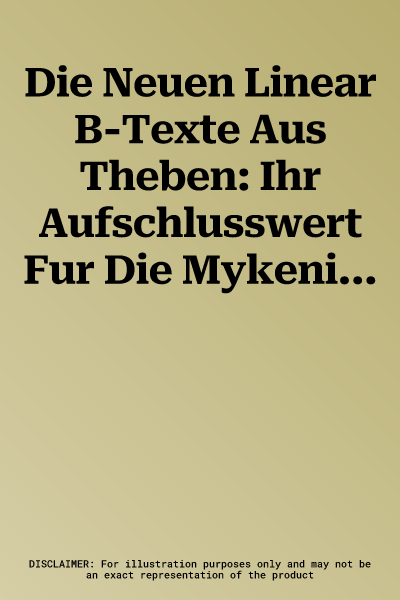Die Neuen Linear B-Texte Aus Theben: Ihr Aufschlusswert Fur Die Mykenische Sprache Und KulturPaperback, 15 May 2006

Qty
1
Turbo
Ships in 2 - 3 days
In Stock
Free Delivery
Cash on Delivery
15 Days
Free Returns
Secure Checkout

Part of Series
Veroffentlichungen Der Mykenischen Kommission
Part of Series
Veroffentlichungen Der Mykenischen Kommission 23, Mykenische
Part of Series
Verffentlichungen Der Mykenischen Kommission
Part of Series
Mykenische Studien
Part of Series
Denkschriften Der Philosophisch-Historischen Klasse
Part of Series
Mykenischen Studien
Print Length
172 pages
Language
German
Publisher
Austrian Academy of Sciences Press
Date Published
15 May 2006
ISBN-10
3700136404
ISBN-13
9783700136408
Description
Product Details
Book Format:
Paperback
Country of Origin:
US
Date Published:
15 May 2006
Genre:
Ancient (To 499 A.D.)
ISBN-10:
3700136404
ISBN-13:
9783700136408
Language:
German
Location:
Vienna
Pages:
172
Publisher: